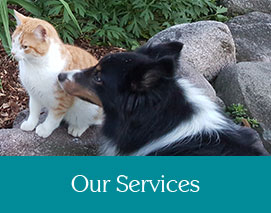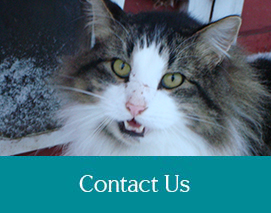Library
-
Basal cell tumors are a common type of skin tumor arising from cells in the deeper layers of the skin. They vary in size, from a few centimeters to inches in diameter, and most commonly appear as single, firm, hairless, raised masses in the skin, often on the head, neck, or shoulders. Most of these tumors are benign but removal may still be considered to prevent trauma or secondary infection. Surgical removal is curative in most cases.
-
The Basenji may be the most un-doglike dog on our planet. He does not bark, cleans himself in a manner similar to that of a cat, is a good climber, and is relatively independent.
-
Despite its droopy visage, the joyful Basset Hound is a good-natured, loving dog that plays well with children and is happy most of the time with everyone in its family, including the cat.
-
Bathing is very important for the proper maintenance of feathers. The dry air in our homes created by central heating and air conditioning is not conducive to the maintenance of healthy feathers and skin, so pet birds should be encouraged to bathe at least three to four times a week. This handout provides helpful tips and safety precautions for bathing your bird.
-
Baylisascaris procyonis, also known as the raccoon roundworm, is a parasite found in the intestinal tract of many raccoons. In some cases, this parasite may also spread to dogs and cats.
-
The Beagle is a sociable, easy-going individual who enjoys meeting anyone and everyone – especially children and other dogs. That said, the breed does have an independent streak, and any self-respecting Beagle is inevitably at the mercy of his nose.
-
Elongated beak and/or toenails are reasons for veterinary care in all pet birds. Beaks should not be trimmed regularly unless performed by an avian veterinarian. Toenail trimming may be done at home, but only when taught by an experienced bird breeder/owner or avian veterinarian.
-
The Bearded Collie just loves life. He is an active, shaggy dog with an effervescent personality, always ready to join his people in any activity.
-
If they are well looked after, including proper diet and husbandry, bearded dragons are reasonably hardy animals. Common health conditions of pet bearded dragons include CANV, atadenovirus, metabolic bone disease, parasites, infectious stomatitis (mouth rot), and respiratory infections. Any change from normal is cause for concern and should be immediately evaluated by your veterinarian.
-
Bearded dragons have specific environmental requirements to thrive as our pets. This handout outlines their housing needs, including enclosure size, appropriate bedding, preferred accessories, and necessary lighting and temperature control.



